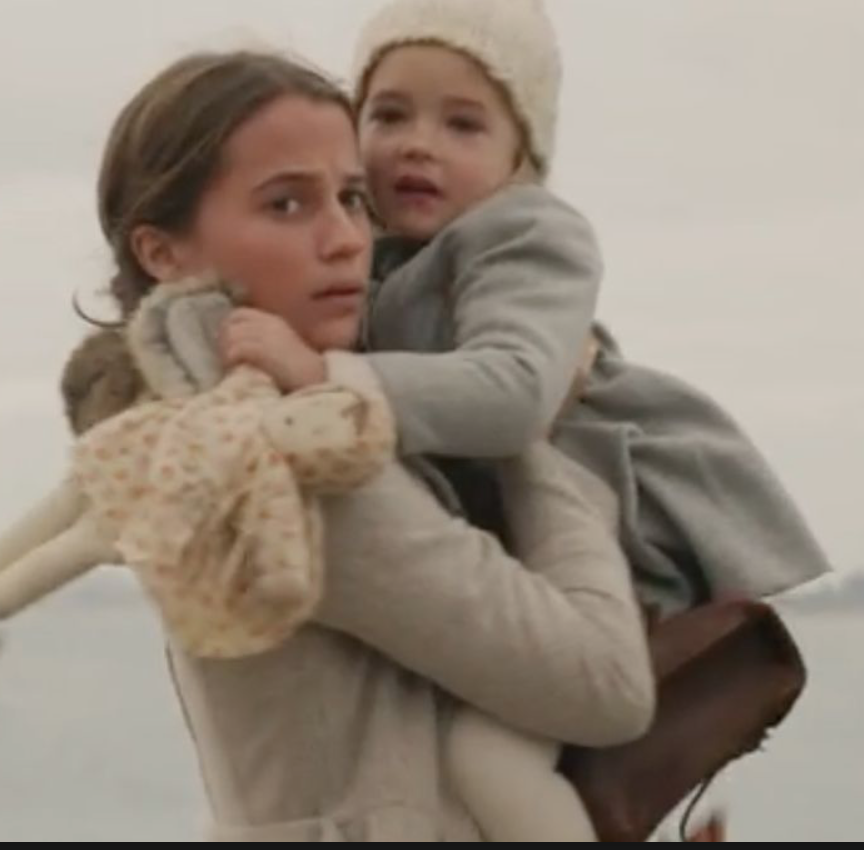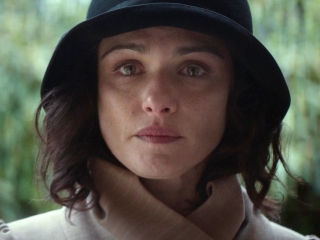 “The Light Between Oceans” is not the type of film that reviewers are inclined to love. Based on M.L. Stedman’s international bestseller, it is less a drama than it is a melodrama, which is currently one of film’s least fashionable genres. That’s a shame in my book, for I’m a big believer that cinema – and for that matter historical fiction – is an ideal forum for those sweeping, unruly emotions that modern life does not otherwise permit; witness the glory of Todd Haynes and Pedro Almodovar movies. Improbably beautiful and improbably anguished, “The Light Between Oceans” offers exactly that experience.
“The Light Between Oceans” is not the type of film that reviewers are inclined to love. Based on M.L. Stedman’s international bestseller, it is less a drama than it is a melodrama, which is currently one of film’s least fashionable genres. That’s a shame in my book, for I’m a big believer that cinema – and for that matter historical fiction – is an ideal forum for those sweeping, unruly emotions that modern life does not otherwise permit; witness the glory of Todd Haynes and Pedro Almodovar movies. Improbably beautiful and improbably anguished, “The Light Between Oceans” offers exactly that experience.
The irony is that it stars Michael Fassbender, that flashing-eyed German who’s made his name with the sort of charged, lean performances that epitomize Hollywood sinew these days. He plays Tom Sherbourne, an Australian four-year combat veteran who has returned from World War I so numb and broken that a job as a lighthouse keeper 100 miles from civilization seems ideal. Naturally, he meets doe-eyed Isabel (Alicia Vikander) while applying for the job. Brazen yet sweet, she’s a 1918 version of the manic pixie dream girl with a melancholy twist: Her two brothers died in the war, and she’s malingering at her parents’ seaside home while all three of them recover their bearings. When she tricks Tom into a quasi-date in which she quasi-proposes, we know even if he doesn’t that her passions are not always proportionate.
He demurs, but not for long, and their epistolary courtship blooms into a marriage that at first reads as something Terrence Malick might deliver at his most idyllic. Bathed in an amber glow and accompanied by the swelling score of Alexandre Desplat, the two make gardening, cooking and chicken-tending look like exquisite foreplay. Alone on their island, the two live outside of time or convention, and even gender roles are irrelevant as they make meals, hay, love. They are Adam and Eve, clad only in pale, loose linens and year-round tans.
But Adam and Eve had their serpent, and this is not directed by Malick but Derek Cianfrance, who showed us in the searing  “Blue Valentine” how well he grasps the hazards of true romance.
“Blue Valentine” how well he grasps the hazards of true romance.
(It is impossible to discuss this plot without spoilers so consider this an official alert!)
Isabel gets pregnant, and their joy is quickly eclipsed by one of the most harrowing miscarriages ever captured onscreen; it coincides with a hurricane that doesn’t seem a coincidence so much as an amplification of the storm ransacking her body. Her grief is primal – animalistic, even – and only when Tom provides her with a piano does she become human again. The depth of her grief is another foreshadowing, for when she loses another child (you’d think after that first miscarriage she might’ve gone back to town for a second pregnancy), something in her perilously shifts, and, when a ship containing a dead man and a wailing baby mysteriously arrives on their shore, she begs Tom not to report their discovery. Instead, they bury the corpse and announce the arrival of their new baby girl. (The second miscarriage is so recent that they have not yet told anyone about it.)
Their happiness is powerful but poorly founded, and soon enough tableaus of their pretty island family are grounded by their introduction to Hannah (Rachel Weisz), the wealthy widow whose husband and infant daughter have been lost at sea. Isabel is unmoved by the sadness in the other woman’s eyes – her embraces of now four-year-old Lucy grow even tighter, in fact – but Tom can’t look away. From then on the happiness of any one of these three is contingent on another one’s misery.
Stakes like these can be dismissed as unlikely, but that’d be missing the point. I read them as allegorical – the stuff of which melodramas are made – and the film itself as a meticulously plotted meditation on the discrepancy between joy and grace.  Though she only appears halfway, Weisz functions as this story’s moral epicenter; now in her forties, she has ripened into one of the most moving screen actresses of our time. Her sorrow is luminous and generous, and seems to vitalize stiff-upper-lipped Fassbender and Vikander, who until now was most aptly cast as a cyborg in “Ex Machina.” Here, the young actress draws on her dance background to channel a physical intensity that is mute, primordial, and ultimately treacherous. The best melodramas offer no facts but many truths. This unaccommodating, unwavering commitment to her character’s suffering liberates Cianfrance to show, not tell, how pure love is revealed only when life sours and hard decisions must be made.
Though she only appears halfway, Weisz functions as this story’s moral epicenter; now in her forties, she has ripened into one of the most moving screen actresses of our time. Her sorrow is luminous and generous, and seems to vitalize stiff-upper-lipped Fassbender and Vikander, who until now was most aptly cast as a cyborg in “Ex Machina.” Here, the young actress draws on her dance background to channel a physical intensity that is mute, primordial, and ultimately treacherous. The best melodramas offer no facts but many truths. This unaccommodating, unwavering commitment to her character’s suffering liberates Cianfrance to show, not tell, how pure love is revealed only when life sours and hard decisions must be made.
This was originally published on Signature.
